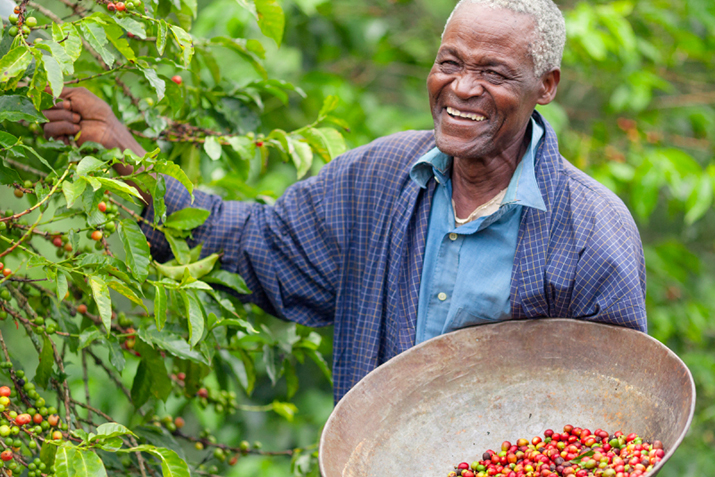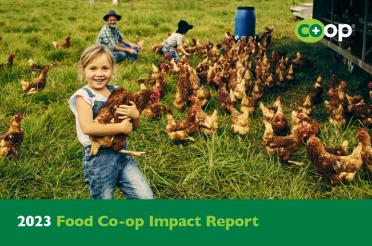Article
Organic Farms and Food Receive Historic Support in 2018 Senate Farm Bill

We love Farm Bill season—everyone is buzzing about a few of our favorite topics: farmers, organic food and access to healthy, nutritious food for everyone. It’s also a fertile opportunity to roll up our sleeves and dig into democracy by contacting our elected officials.
Weeding through this densely packed legislation is no small feat (for us or for Congress), so we’re highlighting a few of the things we are most happy about in the Senate Agriculture Committee’s Farm Bill. In short, this is a big moment for organic agriculture. The grassroots agricultural movement farmers and organic fans started decades ago is coming into its own. Some of the key organic programs we have advocated for many years are set to achieve baseline funding this year! Baseline funding means the programs are much more likely to be included in the annual budget cycle.
Read on for the details—and if you’re as excited as we are—take a moment to call your lawmakers in Washington D.C. and ask them to support the Senate’s version of the Farm Bill that champions organic! It’s easy to call, just dial the U.S. Capitol Switchboard at (202) 224-3121 and provide information about where you live, they’ll transfer your call accordingly. Your call will be routed to an actual phone inside your lawmaker’s actual office—and their offices are pretty tiny. Everyone in there knows when a constituent is calling and they want to hear from you!
Organic agricultural research fully funded to support farmers
The demand for organic food has experienced off-the-charts growth, which is great news for U.S. farmers. Organic is a bright spot in agriculture right now—it is one area that is bringing new people into farming careers and it is making small scale family farming possible again.
But organic farming is not just as easy as making a decision to stop using pesticides—it takes training and access to resources and education. Farmers have to learn new methods of soil management, pest control and animal care, just to name a few. The Organic Agriculture Research Extension Initiative (OREI) in the Farm Bill helps to ensure that best practices and current technology gets shared with farmers through university agriculture extension offices across the country.
The Senate’s version of the bill would establish stable baseline funding for OREI by increasing funding from $20 million to $50 million per year by 2022. We are asking Congress to support this goal in the final bill.
Organic Certification Cost Share Program fully funded to help farmers go organic
The USDA Certified Organic seal is the gold standard of food labels and reflects hard work and careful adherence to agreed-upon standards for what makes something “organically grown.” Farmers are responsible for getting their farms certified each year by a third-party inspector and certifying agent, and for a small farmer, it can be expensive or even cost-prohibitive.
The Organic Certification Cost Share Program offsets some of the costs of organic certification for farmers that qualify. This assistance can be enough to encourage small and beginning farmers to transition to organic, which in turn boosts our country’s homegrown supply of organic food.
The Senate’s version of the bill fully funds the Organic Certification Cost Share Program! Join us in asking Congress to support this in the final bill.
Bonus: Food Insecurity Nutrition Incentive (FINI) Grant Program boosts access to fresh, healthy food
Not necessarily an organic program—but one that is close to food co-ops’ hearts, the USDA FINI grant program funds projects that make fresh fruits and vegetables affordable to people who participate in the Supplemental Nutrition Assistance Program (SNAP), with a priority on projects that focus on locally grown produce.
Not only does this make the freshest, most delicious produce more accessible to more people, it has the added benefits of supporting local farmers and supporting local business. And if you shop at a food co-op, a lot of that local produce is likely to be organic.
Many farmers markets and food co-ops have made great use of FINI grants to establish programs that double SNAP shoppers’ dollars when they are spent on fresh fruits and vegetables (see Willy Street Co-op’s Double Dollars Program), and many more co-ops are eager to get these programs started.
Although the FINI grant gets the ball rolling, co-ops have demonstrated that these programs can be successfully self-sustained once implemented, making the grant money an excellent investment towards making healthy food affordable for all.
The Senate’s version of the bill would fully fund the FINI grant program at $50 million annually. We love fresh fruits and veggies and want more people to have the same opportunity. We are asking Congress to support this funding in the final bill.
What’s most important to you?
We’ve highlighted just a few of the things food co-ops are excited to see in the Senate’s version of the 2018 Farm Bill, but there are many other important programs and ideas in this bill that are worthy of support. Explore some of the links below and find out what inspires you to act. Just like farming, what we care for and attend to grows—adding your voice helps cultivate a stronger democracy.
- Support the National Organic Standards Board and transparency in organic rulemaking
- Homegrown Organic Act (in the Senate and House)
- Local FARMS Act (in the Senate and House)
- Organic Farmer and Consumer Protection Act (in the Senate and House)
- Organic Farmers Access Act
- Seeds for the Future Act (in the Senate and House)
Find out what bills about food and other issues Congress is considering by visiting www.govtrack.us.













